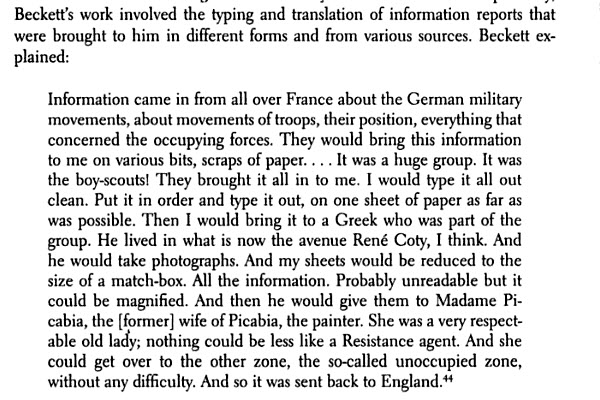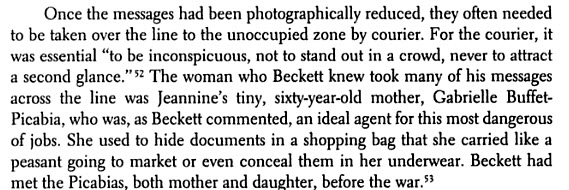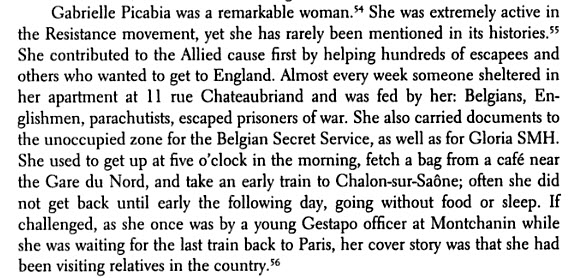


Today's reason is a disease. Gabrielle knows how to use it in
serene alloys. She never cares to pass for a buffet d'orgue (an organ
case) that gives away its gazes and its lips. Sometimes she defends
rustic umbrellas. Her ultra-French gifts are intellect, wit, sound
judgement, understanding, finesse. She despises courtyard monuments.
Periodically she writes manifestoes against famine, poverty, penury,
privation, want. Gabrielle Buffet-Picabia's entire life is devoted
to spiritual adventure.
When the great botanist Jussieu, whom a square in Paris is named
after, returned to France carrying a hat full of earth in which a cedar
grew, little did he know that his granddaughter would some day be more
than a shadowy power behind the throne of the dadaists, a power radi-
ating all the colors of the rainbow. Her grandmother, Madame de Jus-
sieu née Mademoiselle de Sessia, was a niece of Lamartine. But
I have no intention of showing off all Gabrielle's admirable family
tree.
During the dada years we lived in an extraordinary exhilaration
that had no connection with the dreams of Artifical Paradises. It was
a dream of faith that led Hugo Ball to Catholicism. The war made sense
only for the possessed. The dadaists were young writers, painters,
dancers, dreamers. To sing the emotions and the enthusiasm we felt
at hearing that Gabrielle and Francis Picabia would be visiting us
would require the accomplishment of countless harps. Gabrielle and
Francis were returning from the United States, and their arrival in
Zurich in 1919 was meant exclusively for the dadaists. Tristan Tzara
and I made up the welcoming committee. We went to meet them at the
Hotel Élite and found Picabia busy dissecting an alarm clock. As
for Gabrielle, the moment I laid eyes on her I realized that she was
a fantastic and seductive woman. In the course of our long friendship
I also came to realize her exceptional gift for writing. I have never
stopped urging her to collect and publish her memoirs, her essays, and
her dreams.
If Gabrielle sometimes heats her snow white-hot, the similar parts
are always similarly arranged in a whole. The whole is the resultant
of the union of parts of a whole. Gabrielle is symmetrical whereas your
humble servant carries his two columns one atop the other and rolls on
his round head around his navel. Gabrielle is a king. Gabrielle is a
queen. Gabrielle is a castle. She has never been checkmated. Gabri-
elle doesn't like slogans. She avoids will-o'-the-wisps. She loves
voodoo. She is alive. If her heart tells her to, she will fly to
sunnier countries at the speed of a bird-clad arrow. Even when caught
in a cobweb she remains bright as daylight. She has French prejudices.
She is courageous and quick-witted, and during the last war she took
active part in the Resistance.* She studied musical composition with
Vincent d'Indy. She never wracks her brain for epitropes. I have
never seen her wearing a white scarf.--No, I have never claimed that
in a former life she was the beloved of Hannibal and his elephants.
But the true truth is that she transformed Mont-Genève (that hamlet
lost in the mountains and which Hannibal and his elephants passed
through) into a fashionable winter resort.
She was a founding staff member of the famous review 391. She is
wise, for she is like the swallows of today whose nests are no better
than the nests of yesteryear, and no worse. Contrary to the enraged
dandies of supersound, she never wears a mechanical nightgown.
* Webmaster's note:
Recruited by her daughter Jeannine Picabia (birth name Gabriele Cécile Martinez Picabia).
See also below sections from "Damned to Fame: The Life of Samuel Beckett" by James R. Knowlson:


